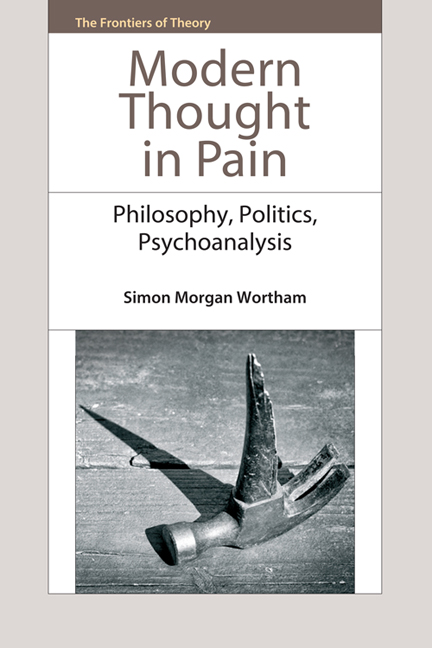Introduction: Modern Thought in Pain
Published online by Cambridge University Press: 05 September 2016
Summary
Radical Evil
At the close of the twentieth century, perceived by many to have been among the most traumatic in history, and in the face of the most spectacular atrocity that seemed to announce new nightmares in its aftermath, a large number of books and articles devoted to the topic of evil were published by well-known academics working in the context of the continental or European tradition. Notable among these, as exemplary instances (though the list is long), were Radical Evil: A Philosophical Interrogation (2002) by Richard J. Bernstein (drafted in the period immediately prior to ‘9/11’) and The Idea of Evil (2008) by Peter Dews, as well as Susan Neiman's prize-winning Evil in Modern Thought (2004). One could also point to a host of other volumes on the topic such as Kant's Anatomy of Evil (2010) edited by Sharon Anderson- Gold and Pablo Muchnik, or Anderson-Gold's own Unnecessary Evil: History and Moral Progress in the Philosophy of Immanuel Kant (2001). Of course, such titles are not exclusively the preserve of the twenty-first century: one thinks, for example, of Joan Copjec's collection, Radical Evil, from the mid-1990s, or Philippe Nemo's Job and the Excess of Evil (1978) as well as a number of other books connected with the upsurge of interest in ethics during that period, for instance Colin McGinn's Ethics, Evil and Fiction (1999). Equally, it would be difficult not to think of many of the greatest contributions to modern European philosophy as connected in some way or other to questions of suffering, pain and torment that seem to form the legacy of the previous one hundred years. Here, certain names spring immediately to mind – Freud, Klein, Levinas, Adorno, Arendt – again, the list could go on – whose writings feature throughout the chapters that will follow. Arendt herself, of course, famously remarked in 1945 that: ‘The problem of evil will be the fundamental question of postwar intellectual life in Europe.’It is telling nevertheless that during the early years of the new millennium renewed interest in the question of evil, in particular as it might be construed in terms of the philosophical legacy post-Kant, both intensified and often reconstituted itself according to the (contested) forms of address demanded in the aftermath of ‘9/11’.
- Type
- Chapter
- Information
- Modern Thought in PainPhilosophy, Politics, Psychoanalysis, pp. 1 - 20Publisher: Edinburgh University PressPrint publication year: 2014



